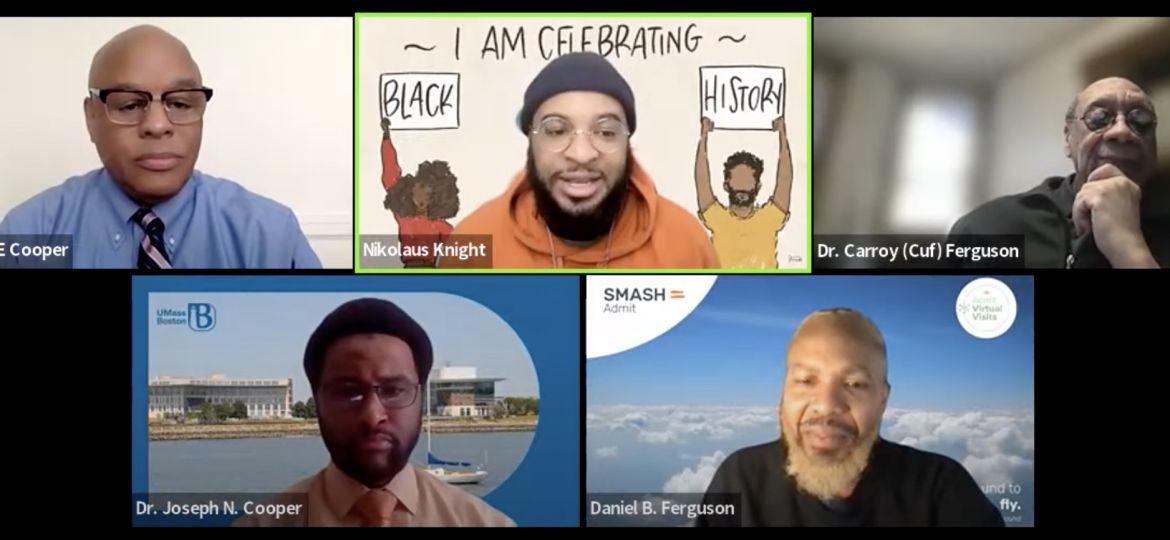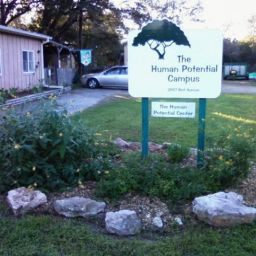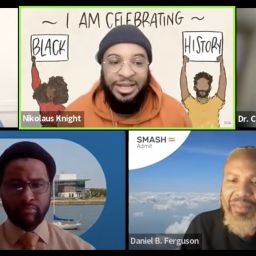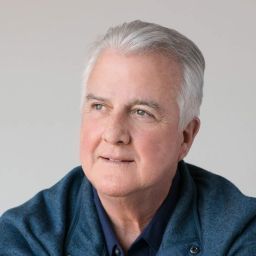
On the planet, there is a need to heal race-linked wounds, particularly anti-black race-linked wounds that stem from systemic racism. It is well known and chronicled that anti-black race-linked wounds are embedded in cultural scripts and societal practices and have been inflicted historically on enslaved people of African descent in the United States, as well as on darker complexion people globally. More specifically, Black men more often have been the targets for many of the inhumane acts exhibited by those who consciously or unconsciously created and/or maintain systemic racism. Systemic racism, grounded in patriarchy (paternalistic), authoritarian (autocratic), and colonial attitudes, mirrors numerous and harmful institutional “shackles” that Black men have had to deal with and overcome over the years. Indeed, “internalized” patriarchy (paternalistic), authoritarian (autocratic), and colonial attitudes may “infect” the minds and the Collective Consciousness of anyone on the planet, even transcending skin color per se, as witnessed by the murder of Tyre Nichols on January 7, 2023.
Given the above, for a virtual, ongoing Global Solutions Summit called Humanity Rising, I was asked by the President of Ubiquity University (Jim Garrison), which sponsors this ongoing Summit, to convene a five-part series of conversations with Black men to share their stories. This ongoing Summit goes out 5 days a week to 20,000-30,000 people in over 130 different countries. I titled this five-part conversational series, “Shedding The Shackles of Systemic Racism I-V”. The conversations took place January 30th-February 3rd, 2023. The purpose of the series of conversations, then, was to bring together a number of Black men, with varied voices, to share their stories about how they have tapped into their own unique talents and structured creative journeys to make a difference at individual and collective levels. Through this five-part series, the intent was to have conversations among Black men from various walks of life to share their views on the effects of systemic racism in regard to: (1) self-definition and self-determination; (2) personal, societal, and/or global challenges and resilience; (3) finding one’s passion to make a difference; (4) educational journeys; and (5) creative visions for the future. These topical areas for conversations were simply lens through which to view personal, societal, and global race-linked issues and dynamics, as well as lived experiences, and therefore were intended to invite varied perspectives pertaining to similarities, differences, and/or overlaps as the conversations unfolded.
Following is a description of and a link to each of the videotaped conversations with Black men on Humanity Rising.
What’s in a name? One of the effects of systemic racism as practiced by those with “anti-black colonized minds” is to reduce Black people to objects, knowingly and consciously or unknowingly and unconsciously. In the United States, for example, the original practice of enslavement was to “try” to strip people (African Americans) of their cultural identities and names, to view Black people as “properties” and to rename “their properties.” For African Americans, and Black men in particular, the lingering effects throughout the centuries has been the societal mirrored effects of the intersection of systemic racism, poverty, and shame on the individual and collective professional identity development of African American men. James Baldwin once posed a question, the substance of which was, why does “white America” need to have African American men to be in the positions that they are. Ultimately only those who consider themselves to be members of “white America” can answer that question. However, Black men may be able to shed some light on the “mirrored societal effects” that such ego fear-based, power-positioning attitudes have on lived experiences. So, in recognition that we are symbolic creatures as a human species, the first conversation began with a focus on how Black men have been stereotypically labeled over the years, and the net effect(s) of such labeling, and what it means to embrace the art and power of self-definition (to name one’s Self) and self-determination in dealing with the aforementioned intersection. Self-definition and self-determination may be considered first steps in shedding the shackles of systemic racism, for both require a profound shift in Consciousness. It ultimately reveals itself as Self-love.
We all live simultaneously in three life spaces—a personal life space, a societal life space, and a global life space. Personal life space experiences involve people, events, and circumstances with which we have “direct face-to-face contact”. Societal and global life space experiences involve people, events, and circumstances with which we have “indirect contact” (not face-to-face), but they may and can have significant impact on us. It is in this context that Black men particularly have experienced centuries of anti-black, race-linked challenges and have had to continually access and exhibit remarkable resilience in the face of the many “imposed shackles” of systemic racism in their personal, societal, and/or global life spaces (e.g, the impact of Jim Crow laws and their nuanced iterations over the years up to the present like voter suppression laws and Florida’s stand your ground law & its rejection of proposed AP African American classes in high schools, viewing it as “lacking educational value”). Such resilience is rooted in ancestral and spiritual energies, sometimes consciously and/or sometimes unconsciously accessed. The purpose of this conversations, therefore, was to solicit observations, views, and perspectives from some Black men about various personal, societal, and/or global issues and dynamics that they have witnessed directly and/or indirectly related to systemic racism and how Black men particularly have had to demonstrate and exhibit resilience historically throughout the years.
Passion is a strong liking or desire for or devotion to some activity, object, or concept. Passion serves as the “inner energy” behind the drive to implement one’s vision. Each person, therefore, creates a unique life affirming structure for the expression of their unique passion(s). When applied to the experiences of Black men in the United States, and globally, that passion, that “inner energy,” often gets translated or manifested into a desire to make a difference (i.e., efforts to create change) in one’s personal, societal, and/or global life space that may be related to a myriad of injustices, at individual and/or collective levels. At individual levels, for example, those efforts may relate to spiritual teaching, mentoring youth, or initiating/modeling value propositions, or serving as a role model, or relaying cautionary tales to their families, friends, colleagues, and neighbors. At collective levels, those efforts may relate to local or societal or global initiatives and campaigns to heal race-linked wounds, to seek redress for injustices, and/or to bring or enhance awareness about what is working and what is not in terms of race-relations. The purpose of this conversation, therefore, was to have some Black men share how they “uncovered” their passion(s) and to share their perspectives about how they have been engaged in efforts to make a difference at individual and/or collective levels.
Education has often been touted as one of the primary means for shedding the shackles of systemic racism, particularly for Black men. Yet, all too often the challenges of systemic racism have landed a disproportionate number of Black men behind prison walls rather than into the hallowed halls of higher educational institutions. In that light, the Black men who have managed to traverse the journey to higher education and beyond have unique stories to tell. As part of the commemoration of Black History Month (February), and in alignment with the initiatives of a newly formed Bowdoin College Black Alumni Association, the intention of this session was to have a conversation with Black male alumni of Bowdoin College. Through this conversation, the hoped-for outcome was to co-create a space for sharing some things about their unique educational journeys to and experiences while at Bowdoin College. The conversation was also intended to provide a glimpse into how these Black male Bowdoin College alumni have also uniquely used their higher educational experience to constructively chart varied and highly valued professional journeys beyond college life in their desire to make a difference at individual and collective levels.
One of the soul-centered Archetypal Energies that we can all access, if we allow ourselves to do so, is what is called Vision. Archetypal Energies are Higher Vibrational Energies, operating deep within our psyches at individual and collective levels, that lead us toward our optimal Selves and optimal realities. We tend to experience them as “creative urges.” As an Archetypal Energy, Vision is an energy aspect of authentic essence or a soul quality that nurtures the birth of and supports all seed thoughts for manifestation, seeing, and synthesizing all relevant energies that may be desired and/or required for a creative enterprise. In this light, Vision functions to give birth to and to support one’s creative imagination and is thus seen as one of the principle underlying energies that is important to tap into and to use in accord with the art of manifestation. Vision also gives a person a sense of destiny and meaning. Throughout the centuries, therefore, many Black men have had to and have been able to tap into their Vision(s). To shed the shackles of systemic racism, they have called up their Vision to see beyond the shackles of systemic racism, to invent things for the common good (e.g., Garrett Morgan, the three light traffic light; Frederick McKinley Jones, refrigerated trucks; Alexander Miles, automatic elevator doors), to become activists in the community, to create art and songs that nurture themselves and others, to stimulate and engage others in critical thinking in educational settings and non-educational settings to broaden perspectives. The purpose of this session, therefore, was to have a conversation with some Black men who use Vision for their unique work in the world. This conversation may also be viewed as an aspirational conversation about the future, as viewed through the lens of some Black men conceived of as “All in the Family.”
My empirical research has revealed that underlying, supporting, and maintaining systemic racism, particularly anti-black racism as it pertains to targeting Black men, are deep wounds rooted in the human psyche linked to black/dark/bad and white/light/good “associative thought patterns”. It is these “associative thought patterns,” consciously or unconsciously carried around in the mind, that manifest themselves as systemic racism in the culture, in organized or organizational settings, and through societal laws, rules, regulations, and practices. The empirical research findings on “associative thought patterns” can be found in two writings, my book titled A New Perspective on Race and Color: Research on an Outer vs Inner Orientation to Anti-Black Dispositions and my article titled Healing Our Race-Linked Wounds. As a human species, however, we do not have to stay stuck in this kind of anti-black, race-linked reality. We can evolve our individual and Collective Consciousness. Toward that end, I also published another book for readers to peruse. The purpose of this latter book is to assist with evolving our individual and Collective Consciousness in regard to race relations and to invite readers to heal their race-linked wounds. This award-winning book is titled, Evolving The Human Race Game: A Spiritual and Soul-Centered Perspective.
I, therefore, invite all readers of this article and those who watch and listen to the videotaped conversations with Black men to start your own race-linked conversations. Bother to have constructive race-linked, exploratory conversations with your families and loved ones and with those in your various networks. That is one of the purposes for sharing these videotaped conversations with Black men and the references to the written resources. Please feel free to use them, as you see fit, as stimuli or aids for your conversations. Bother to inspire others to heal their race-linked wounds, as you engage in your own self-healing process. We must raise the vibrational frequency of our individual and Collective Consciousness in order to shed the shackles of systemic racism. Einstein once said that you cannot solve problems with the same kind of Consciousness that created them. I concur. It is time to heal our race-linked wounds at individual and collective levels.






